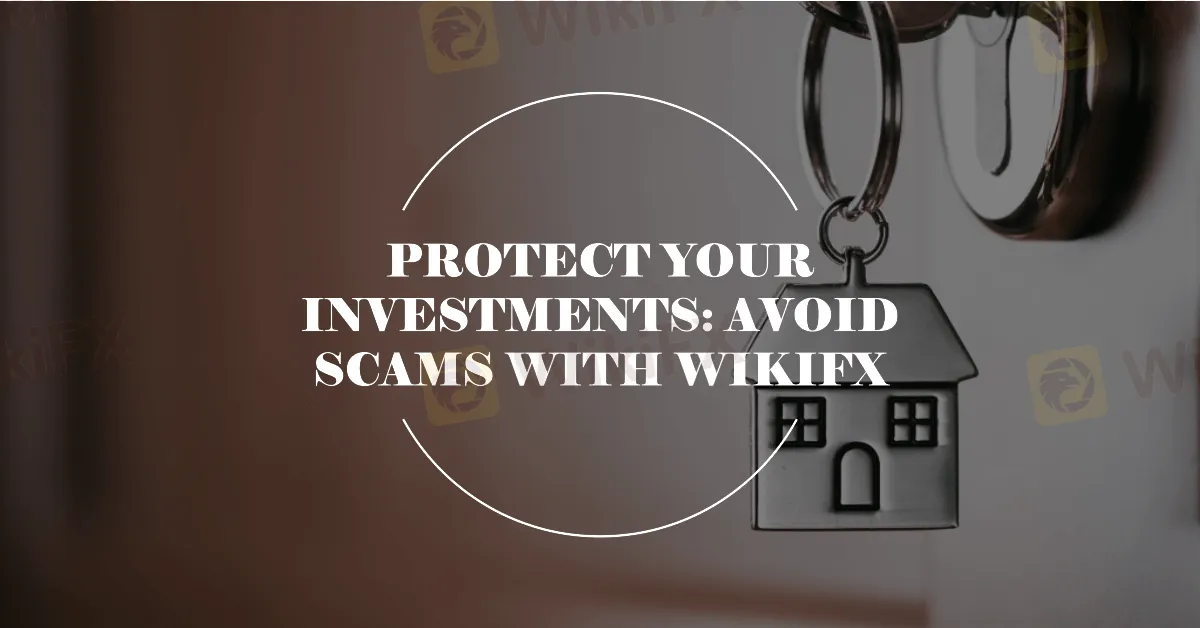简体中文
繁體中文
English
Pусский
日本語
ภาษาไทย
Tiếng Việt
Bahasa Indonesia
Español
हिन्दी
Filippiiniläinen
Français
Deutsch
Português
Türkçe
한국어
العربية
Safeguarding Your Investments: How to Escape and Avoid Scams with the Help of WikiFX
Abstract:In today's complex financial landscape, it's crucial to protect yourself from scams that can jeopardize your hard-earned money.

Forex scams, in particular, pose a significant threat to unsuspecting investors and traders. However, by following a few essential steps and utilizing reliable tools like WikiFX, you can safeguard your investments and make informed decisions. In this article, we will guide you through a step-by-step procedure to escape and avoid scams, with a particular emphasis on leveraging the benefits of WikiFX.
Research and Education:
To build a solid foundation for protecting yourself from scams, it's important to invest time in research and education. Understand common types of scams and their warning signs. Explore resources like financial websites, reputable educational platforms, and online forums dedicated to investment discussions. Equip yourself with knowledge about the forex market, including legitimate brokers, regulations, and industry practices. This foundational understanding will serve as your first line of defense against potential scams.
Due Diligence:
Before engaging in any investment opportunity, conduct thorough due diligence. Scrutinize the company or individual offering the investment. Verify their credentials, licenses, and regulatory compliance. Check if the broker or investment firm is registered with reputable financial regulatory authorities. Confirm their track record, client reviews, and any disciplinary actions taken against them. By digging deeper into the background of the entity, you can make more informed decisions and avoid falling into fraudulent schemes.
Utilize WikiFX:
One valuable tool that can assist you in identifying and preventing scams is WikiFX. WikiFX is a comprehensive forex broker database that provides vital information and ratings of brokers worldwide. Here's how you can leverage WikiFX:
a. Broker Investigation:
Before entrusting your funds to a broker, search for the broker's name on WikiFX's database. You will find detailed information about the broker, including its regulatory status, licenses, and contact details. Pay attention to any red flags, such as a lack of regulation or negative reviews from users.
b. Risk Assessment:
WikiFX assigns risk ratings to brokers based on multiple factors, including regulatory compliance, business history, and customer feedback. These ratings can serve as an additional reference point to evaluate the credibility and reliability of a broker. Avoid brokers with high-risk ratings, as they may pose a greater risk of being involved in fraudulent activities.
c. User Reviews and Forum:
WikiFX's user reviews and forum sections allow investors to share their experiences and insights about brokers. Read through these sections to gain valuable perspectives from other users. Look for consistent positive feedback and avoid brokers with a history of negative reviews, complaints, or suspicious practices.
Consult Professionals:
If you are uncertain about an investment opportunity or suspect a potential scam, consider seeking advice from professionals. Financial advisors or legal experts can provide guidance and help you navigate complex investment decisions. They can review the legitimacy of an investment, offer insights, and assist in identifying potential red flags.

Disclaimer:
The views in this article only represent the author's personal views, and do not constitute investment advice on this platform. This platform does not guarantee the accuracy, completeness and timeliness of the information in the article, and will not be liable for any loss caused by the use of or reliance on the information in the article.
Read more

WikiEXPO Dubai 2024 will take place soon!
2 Days Left!

Italian Regulator Warns Against 5 Websites
The Italian regulator, CONSOB has issued a warning against five websites offering unauthorized financial services. This regulatory action aims to protect the public from fraudulent activities.

WikiEXPO Dubai 2024 is coming soon
3 Days Left!

Trader Exposes Unethical Practices by STP Trading
A recent allegation against STP Trading has cast doubt on the firm's business practices, highlighting the potential risks faced by retail traders in an increasingly crowded and competitive market.
WikiFX Broker
Latest News
What Makes Cross-Border Payments Easier Than Ever?
Trader Exposes Unethical Practices by STP Trading
Italian Regulator Warns Against 5 Websites
Currency Calculator


